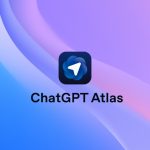GITHUB LML AI MODELS
GitHub and the Landscape of Large Machine Learning Models (LML)
GitHub, the world’s leading platform for collaborative software development, has become a central hub for projects involving large machine learning models (LML). These models, often trained on massive datasets to solve complex problems, have revolutionized fields ranging from natural language processing to computer vision. The availability of LML on GitHub empowers developers, researchers, and organizations to innovate and build on cutting-edge AI technology.

GitHub as a Hub for Machine Learning
GitHub’s open-source ecosystem provides an ideal platform for sharing, refining, and deploying machine learning models. It offers features like version control, collaboration tools, and integration with popular CI/CD pipelines, making it a natural choice for LML projects.
Developers frequently use GitHub to:
- Host Pretrained Models: Popular repositories often include pretrained models, allowing users to apply them without significant computational investment.
- Share Research Code: Academic papers are often accompanied by GitHub repositories, facilitating reproducibility and community collaboration.
- Provide Tutorials and Documentation: Many LML repositories include comprehensive guides, making them accessible to a broader audience.
- Encourage Community Contributions: GitHub’s pull request and issue tracking system fosters an environment where users can contribute improvements or report bugs.
Prominent LML Available on GitHub
- GPT (Generative Pre-trained Transformer):
- Developer: OpenAI
- Description: A family of transformer-based models for natural language processing, capable of generating human-like text.
- Applications: Chatbots, content generation, summarization, and translation.
- Example Repository: Hugging Face’s Transformers library integrates OpenAI’s GPT models, offering pre-trained versions and fine-tuning capabilities.
- BERT (Bidirectional Encoder Representations from Transformers):
- Developer: Google AI
- Description: A groundbreaking model for understanding context in language by processing text bidirectionally.
- Applications: Sentiment analysis, question answering, and text classification.
- Example Repository: Google-research/bert on GitHub provides pretrained BERT models and examples.
- YOLO (You Only Look Once):
- Developer: Joseph Redmon et al.
- Description: A fast object detection model that processes images in real-time.
- Applications: Autonomous vehicles, security systems, and image recognition.
- Example Repository: ultralytics/yolov5 offers the latest YOLO implementations and pretrained weights.
- Stable Diffusion:
- Developer: Stability AI
- Description: A model for generating high-quality images from textual descriptions.
- Applications: Creative design, virtual reality, and gaming.
- Example Repository: CompVis/stable-diffusion hosts the official code and pretrained models.
- DALL•E:
- Developer: OpenAI
- Description: A model designed to generate images from textual input, demonstrating creativity and compositional reasoning.
- Applications: Content creation, advertising, and educational tools.
- Example Repository: While the original code isn’t publicly available, alternatives like DALL-E mini (by Hugging Face) are open-source.
- CLIP (Contrastive Language–Image Pretraining):
- Developer: OpenAI
- Description: A multimodal model that connects text and image understanding by learning joint representations.
- Applications: Image search, zero-shot classification, and content moderation.
- Example Repository: OpenAI’s CLIP repository includes pretrained models and evaluation scripts.
- DeepLab:
- Developer: Google Research
- Description: A state-of-the-art model for semantic image segmentation.
- Applications: Autonomous vehicles, medical imaging, and augmented reality.
- Example Repository: tensorflow/models on GitHub includes DeepLab implementations.
- Whisper:
- Developer: OpenAI
- Description: An automatic speech recognition (ASR) system capable of transcribing and translating spoken language.
- Applications: Transcription services, accessibility tools, and multilingual translation.
- Example Repository: OpenAI’s Whisper repository provides pretrained models and usage instructions.
Advantages of Hosting LML on GitHub
- Accessibility: GitHub makes LML accessible to a global audience, encouraging innovation across industries.
- Collaboration: Developers can collaborate across geographies and expertise, improving models and expanding their applications.
- Transparency: Open-source LML fosters transparency, enabling users to understand and modify models as needed.
- Community Support: Active communities on GitHub provide support, share insights, and develop complementary tools.
Challenges and Considerations
- Resource Requirements: Large models often require significant computational resources for training and fine-tuning, which can limit accessibility.
- Ethical Concerns: Models like GPT and Stable Diffusion raise questions about misuse, bias, and copyright infringement.
- Version Management: Keeping track of updates and ensuring compatibility can be challenging for large, complex models.
- Data Privacy: The datasets used to train these models may include sensitive or copyrighted content, leading to privacy concerns.
GitHub’s role as a hub for large machine learning models is a testament to the platform’s versatility and its importance in modern AI development. By hosting a diverse range of LML, GitHub enables collaboration, innovation, and democratization of advanced AI technologies. As the field progresses, addressing challenges like resource demands and ethical considerations will be crucial to ensuring that these powerful tools are used responsibly and effectively.











